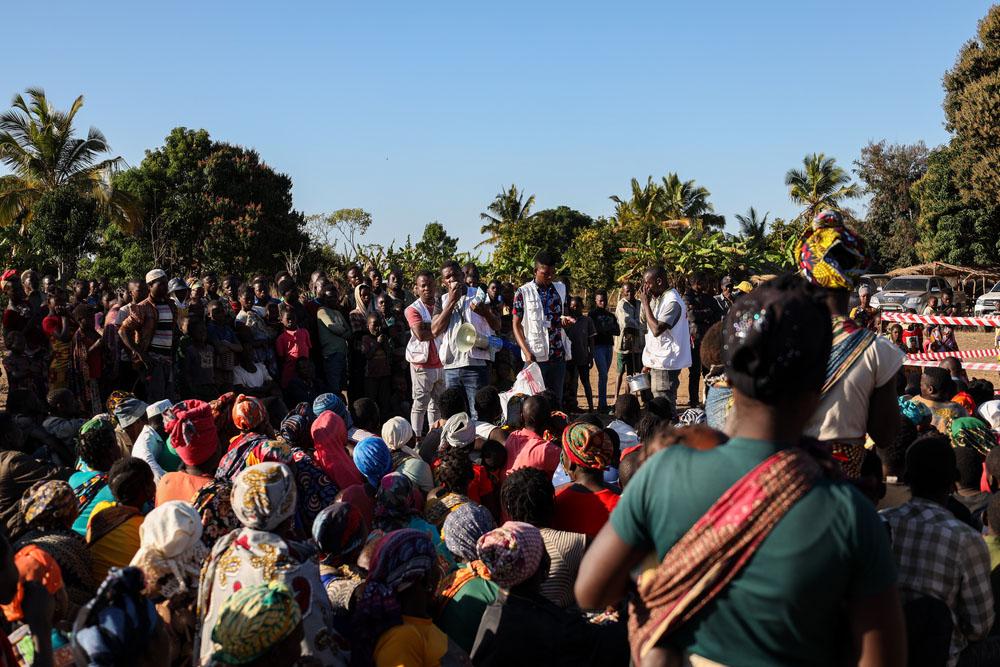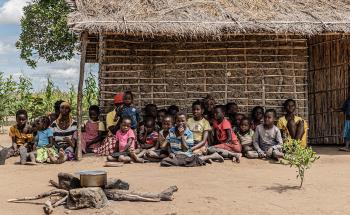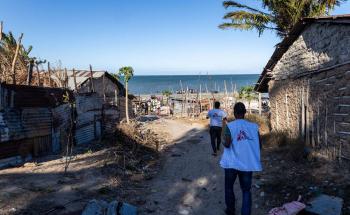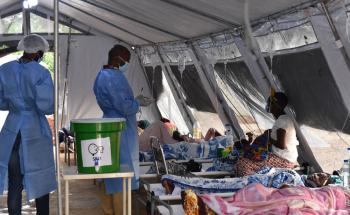Mozambique’s northern province of Cabo Delgado has been since 2017 at the centre of an intense conflict. Between early June and July, a wave of violence has driven over 80,000 people out of their homes. This is now the largest peak of displacement in the year and has brought the total number of internally displaced people (IDPs) to more than 900,000 . Most of the recent violence has hit southern parts of the province close to the capital, Pemba, that were previously considered relatively stable. People flee with barely anything to different locations.
Apart from running stable projects in locations in hard-to-reach areas in central and northern Cabo Delgado (Macomia, Mueda and Palma), MSF teams are doing as much as they can in this fluid situation now also in the south, and have so far distributed essential relief items, such as blankets, tarpaulins and water barrels, in nine different locations hosting a large amount of new arrivals, including Montepuez and Meluco. Since mid-June, over 4,000 families -approximately, over 20,000 people – have received the kits.
Following these attacks and rumours of attacks, here are the testimonies of an MSF supervisor and three people who found shelter in a settlement situated on the outskirts of the city of Montepuez.
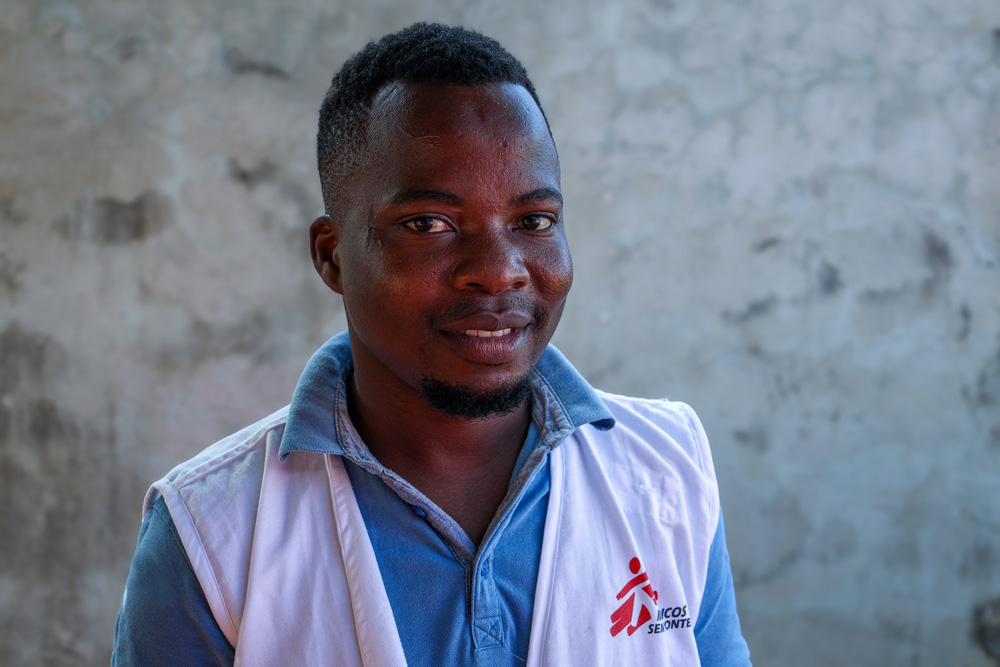
I really enjoy my work. I am very happy when I feel the satisfaction of helping others. Whenever I am in the field, I feel that.
We have been distributing emergency kits to many people because they are running from their homes in fear. To be able to respond quickly and ensure the distribution is well done, we must always be alert. When we hear of a new attack, we immediately think ‘do we know people in that area?’ We usually call community leaders in the villages nearby, and they tell us where people have fled to. We also take the time to explain who MSF is and our principles, but that's not a problem. MSF acceptance is usually really good here. We have been working in Cabo Delgado for a while now, and people already know and trust our work.
Once we understand the magnitude of the situation, we contact the local government to get an official list of people who have been displaced and who should receive the kits. From there, the MSF supply team prepares the kits and loads them onto trucks. In one of our warehouses, for example, we always keep 2,000 kits ready in case of an emergency.
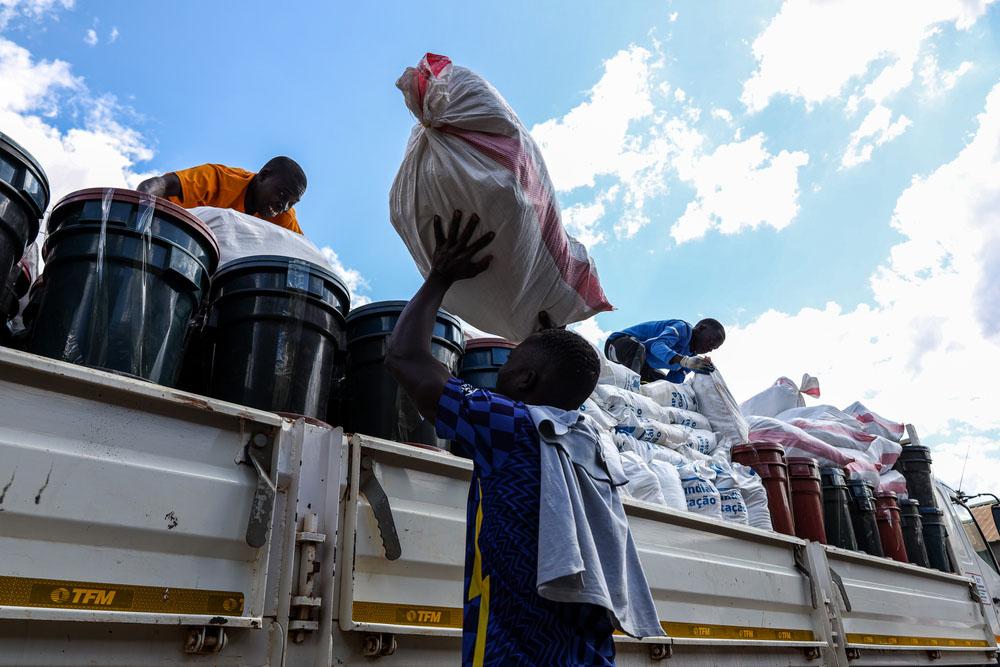
Once we arrive at the spot where people are, we distribute tickets to recently displaced people so they can collect the kits the day before the distribution, which is based on the official list. This is crucial so that everything runs smoothly. We design a circuit with an entry point, a place where we hand out the kits, and an exit point. Part of my role on distribution day is also to walk around, talk to people and see if there are any issues. It’s a bit like conflict mediation, you know? Sometimes, displaced families arrive in areas where there were already local communities living, and this can create tensions.
Once we arrive at the spot where people are, we distribute tickets to recently displaced people so they can collect the kits the day before the distribution, which is based on the official list. This is crucial so that everything runs smoothly. We design a circuit with an entry point, a place where we hand out the kits, and an exit point. Part of my role on distribution day is also to walk around, talk to people and see if there are any issues. It’s a bit like conflict mediation, you know? Sometimes, displaced families arrive in areas where there were already local communities living, and this can create tensions.
After the first attack on Mocímboa da Praia in 2017, my family decided to stay because we thought the situation was not so alarming. The night of the attack in June 2020, I was sleeping alone in a house, and suddenly I heard many shots and men shouting. That day I spent 24 hours hiding and only drinking water. I soon managed to contact some friends, and we went out, walking through the woods. I walked 43 kilometres to the town of Awasse and got a ride to Mueda, where I stayed for some time.
Then, as time passed, things calmed down, and I managed to get in touch with my family. Today we are all fine, but I know what it's like to go through that. So, by helping other displaced people, I feel very happy.”
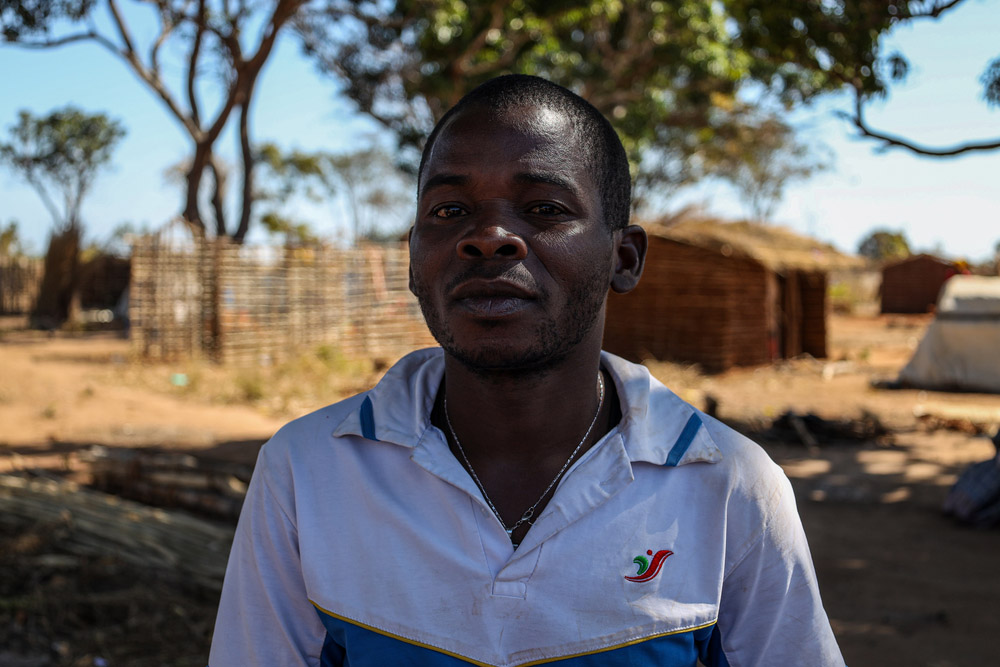
“We’re starting from scratch here. We need many things because we left everything we had behind. I fled Ancuabe with my two children. At the moment, I don't know where their mother is. When my village was attacked, each one of us fled in a different direction, and I still haven't been able to get in touch with her. I hope she will call me, that she will remember my number, so we can all reunite.”
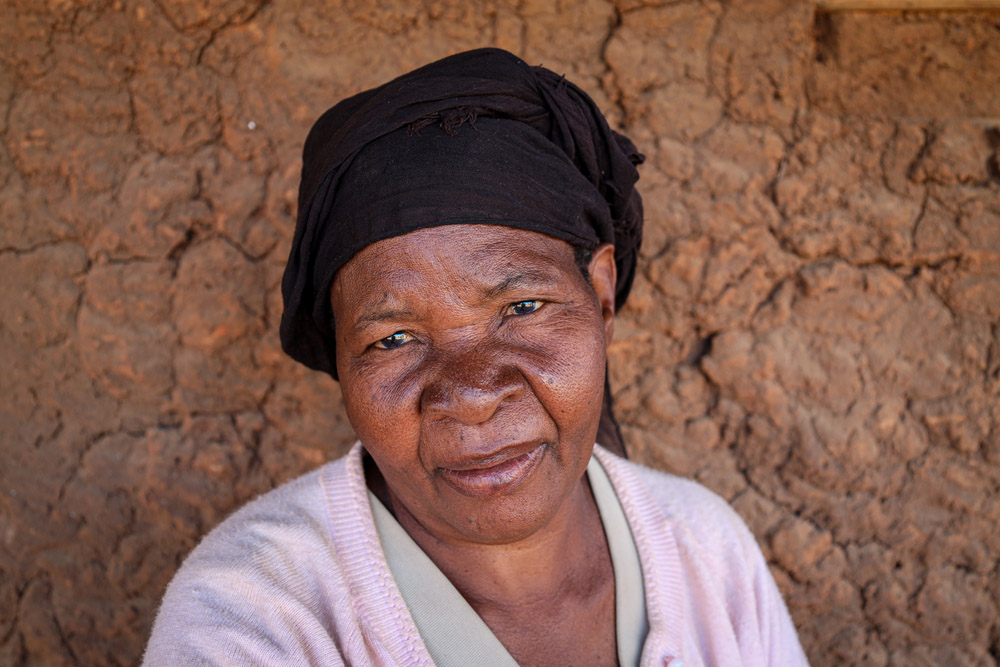
“I recently arrived in the community of Mumane, in the district of Montepuez, from Ancuabe. The day there was an attack in my village, I fled towards Montepuez and my husband towards the capital, Pemba. I had a 'machamba' —land for growing food— where I planted rice, sugar canes, banana trees... and I left everything behind; I only came with the clothes I am wearing now. Despite that, here we are fine, because there we lived in fear all the time. At the moment, I am also looking after an orphaned child, whose father was killed and whose mother was kidnapped. My dream is that this war will end, and we can return to our land.”
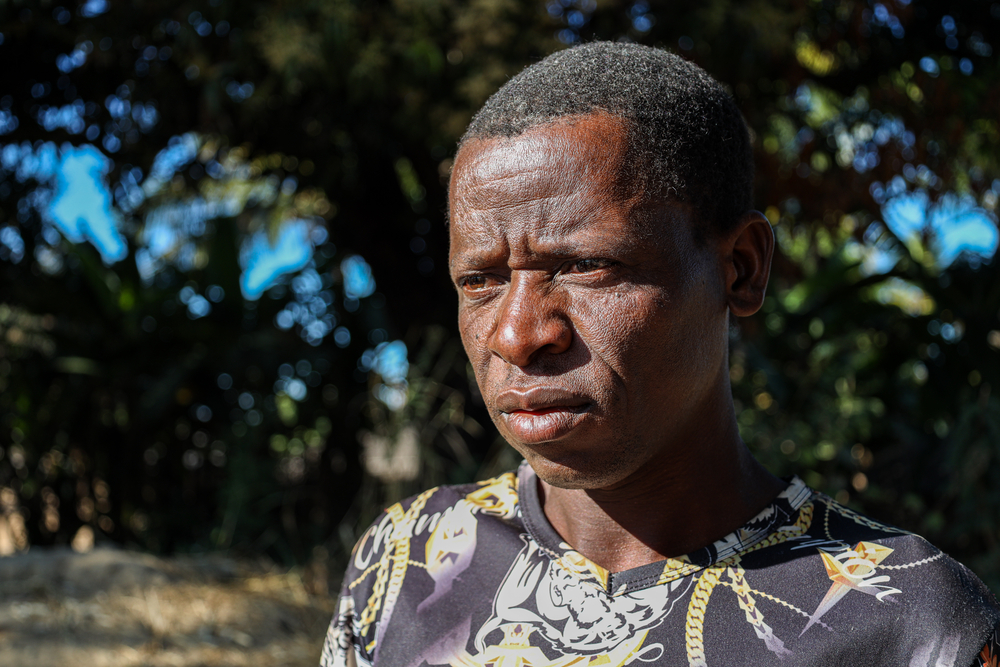
“My house was completely burnt down. I came here from Ancuabe with my two daughters. When my village was attacked, my family members fled to different places and today I don’t know the whereabouts of many of them. Despite this, I feel more at ease and safe here in Montepuez, since in Ancuabe I lived with the constant fear of losing my life.”
